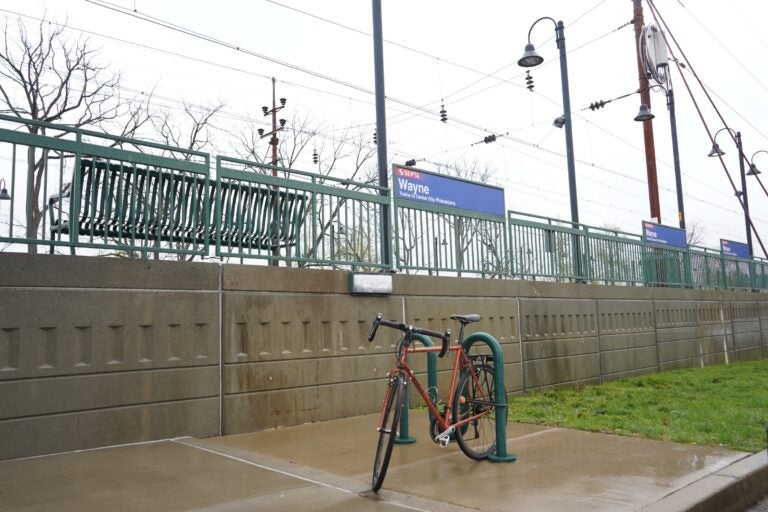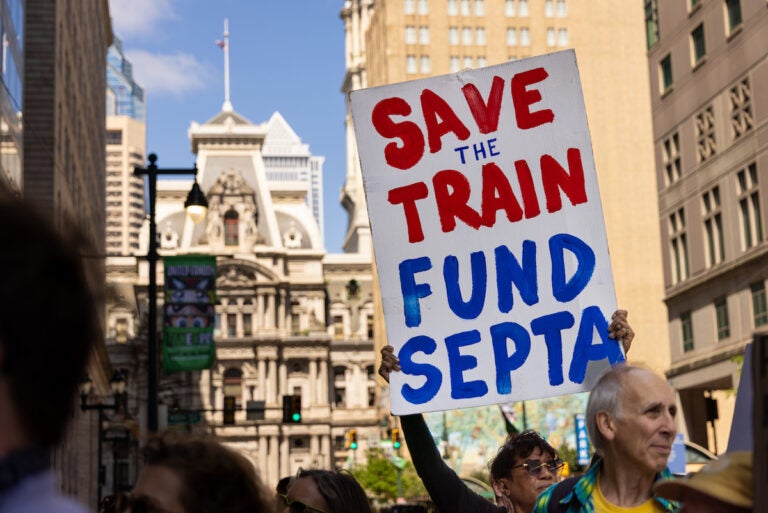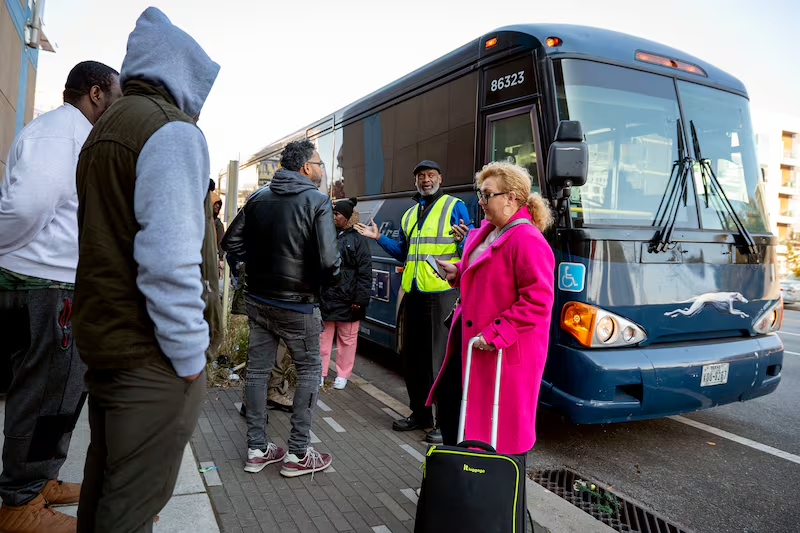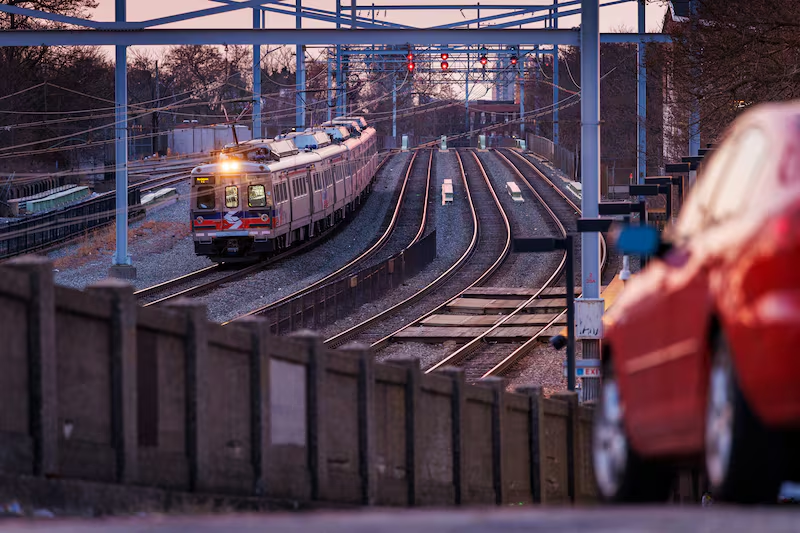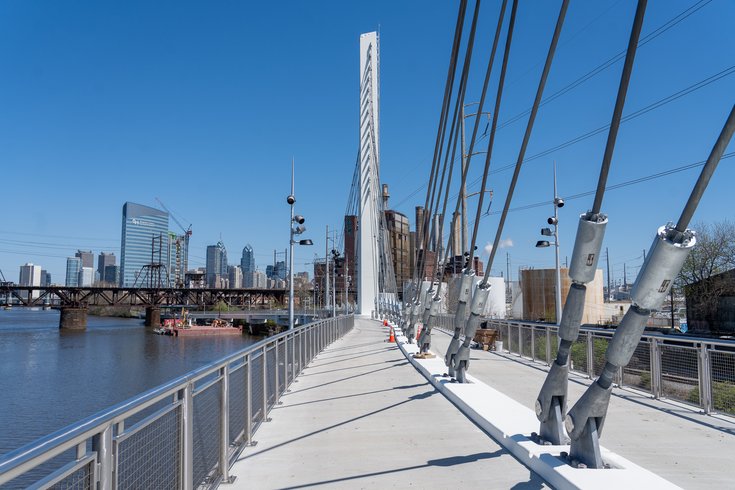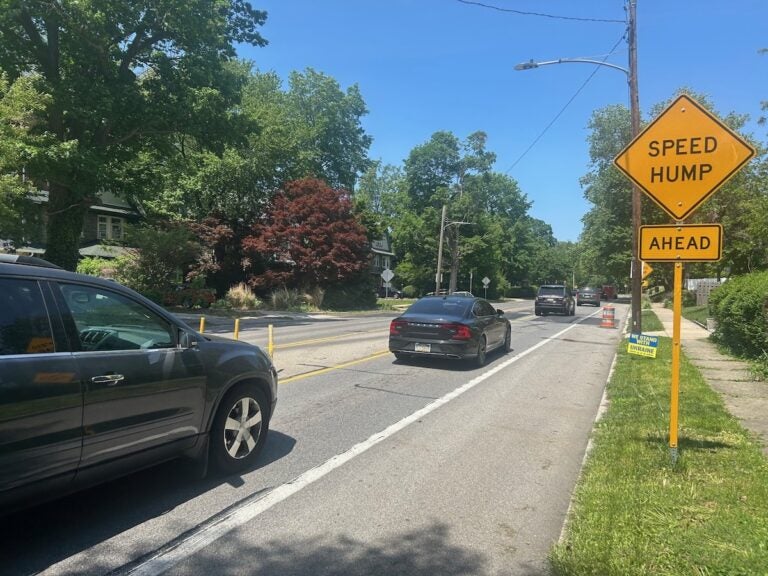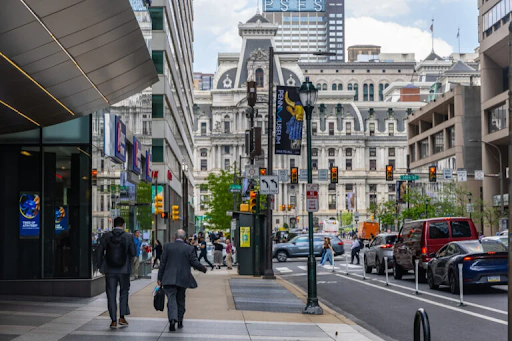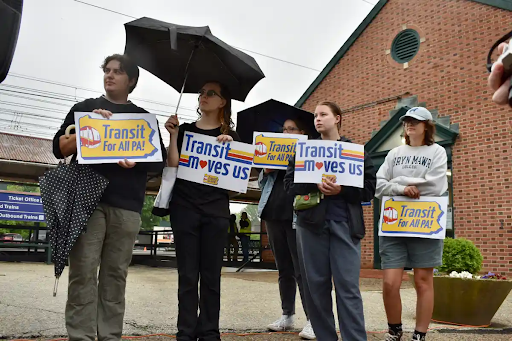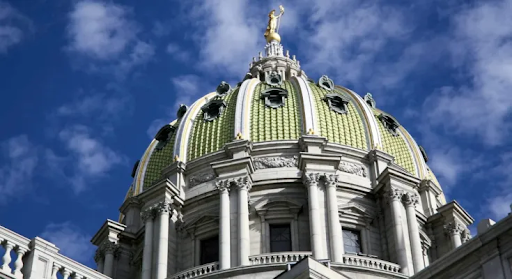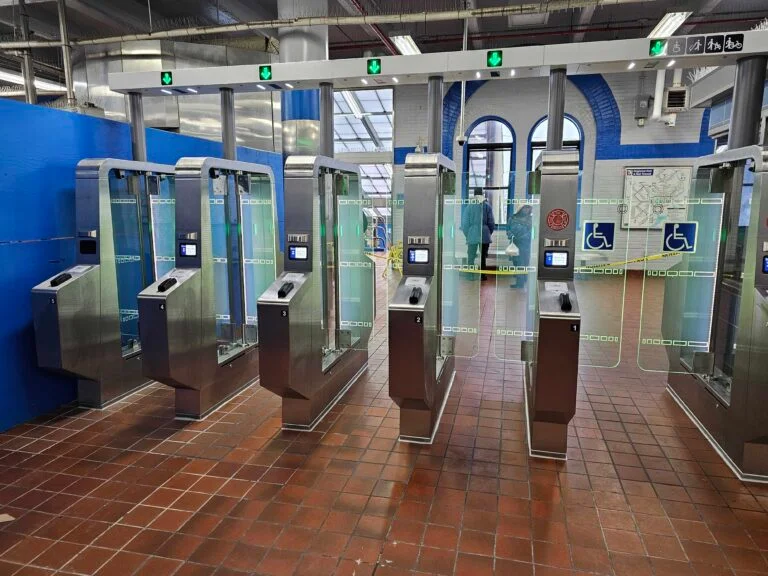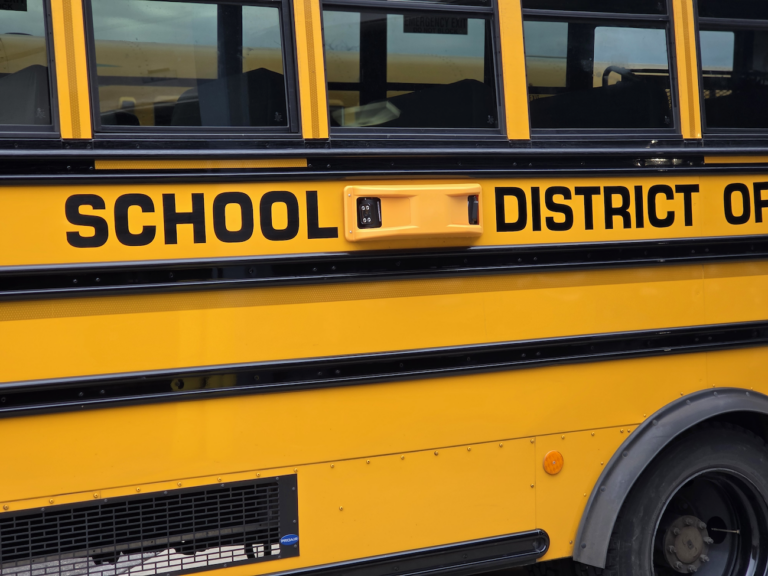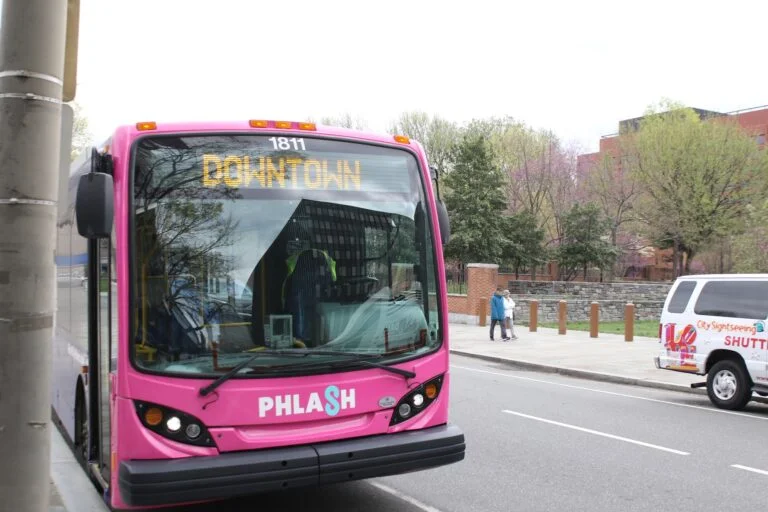“The Hub” is a weekly round-up of transportation related news in the Philadelphia area and beyond. Check back weekly to keep up-to-date on the issues Clean Air Council’s transportation staff finds important.
Join the Transit For All PA campaign for sustainable transit funding to keep our State moving forward.
Plan Philly: Looming SEPTA cuts could increase climate pollution in the Philly area – The Delaware Valley Regional Planning Commission predicts that SEPTA’s looming service cuts would dramatically increase Philly traffic, estimating an increase of at least 275,000 cars on Philly-area roads daily. These higher levels of traffic could increase Philly’s overall carbon emissions by 1%.
Plan Philly: SEPTA board pressed for answers over proposed cuts: ‘Are people just supposed to walk?’ – SEPTA held the first of a series of public hearings on Monday at its headquarters on Market Street. Dozens of SEPTA riders shared testimony about how essential public transportation is to their daily lives, urging the agency’s board to avoid service cuts.
The Inquirer: Peter Pan CEO offers to turn Roundhouse into a bus terminal depot – At a City Council hearing on Wednesday, Peter A. Picknelly, chairman and CEO of Peter Pan Bus Lines, offered to develop the abandoned Roundhouse police headquarters on Race Street into a badly needed intercity bus terminal. Currently, passengers riding on intercity bus lines convene near Spring Garden Street and Delaware Avenue, a location that was meant to be a temporary solution.
Other Stories
BillyPenn: Riders call SEPTA essential to their lives and plead for state funding
The Inquirer: On Day 1 of SEPTA’s public budget hearings, riders were scared by proposed cuts
NBC10: SEPTA workers bring their funding battle to Harrisburg, Pennsylvania
PlanPhilly: Some popular SEPTA bus routes may disappear before others with low ridership. Here’s why
NorthJersey.com: As NJ Transit trains start to roll again on May 20, here’s how talks played out
Mass Transit: PA: FlixBus to begin service from Reading to Philadelphia and New York
“The Hub” is a weekly round-up of transportation related news in the Philadelphia area and beyond. Check back weekly to keep up-to-date on the issues Clean Air Council’s transportation staff finds important.
SEPTA’s Budget Hearings: Register to attend the budget hearing on May 19th at 11:00 am in SEPTA’s Board Room or register here for the 5:00 pm time slot. You can also join the budget hearing scheduled for May 20th and the Capital Budget hearing on May 21st. Let’s show up for public transit!
The Inquirer: Amid financial crisis, SEPTA is pushing ahead with a money-saving efficiency effort – SEPTA’s Efficiency & Accountability program has reportedly generated $91.4 million since the program’s initiation in 2021. The program’s fresh focus includes initiatives to improve efficiency in safety, deter fare evasion, and gain income from development deals around SEPTA’s transit properties.
PhillyVoice: New Schuylkill River trail segment and bridge connecting Grays Ferry to Center City opens Saturday – The new Christian to Crescent addition of the Schuylkill River Trail, featuring 2,800 feet of pedestrian and cyclist pathways and a 650-foot bridge, will open on Saturday. The woven, cable-stayed design of the bridge is the first in the state, according to city officials.
Plan Philly: Philly hopes to slow down traffic on Lincoln Drive by adding speed slots – New speed slots are being installed on a residential stretch of Lincoln Drive, in West Mount Airy, with the intention of slowing down drivers and reducing crashes that endanger residents and pedestrians. The sets of speed spots are part of a pilot project with PennDOT that was catalyzed by a wave of neighborhood activism.
Other Stories
NBC 10: ‘Transit is vital’: SEPTA workers rally at Pa. capitol in fight for funding
Philly Voice: NJ Transit train engineers strike over wage dispute, halting rail service
The Inquirer: Pa. Supreme Court hears arguments over whether a special prosecutor for SEPTA crimes is unconstitutional
The Inquirer: NJ Transit rail engineer are on strike. Here is what you need to know.
NBC10: PPA delays start of fines for running red light at busy Center City intersection
“The Hub” is a weekly round-up of transportation related news in the Philadelphia area and beyond. Check back weekly to keep up-to-date on the issues Clean Air Council’s transportation staff finds important.
PlanPhilly: Philly’s commuter foot traffic outpaced most peer cities’ downtowns in 2024 – Commuter foot traffic into Center City has rebounded to rates higher than downtowns in other cities, according to the annual State of Center City report released Thursday. About 73% of workers in Philadelphia — commuters and downtown residents — are back in person across Center City offices in 2024, up from 69% in 2023.
Metro Philadelphia: Fares up, service down: SEPTA riders sound the alarm – Montgomery County elected officials, university administrators and students, and transit advocates gathered at Bryn Mawr Station – slated for closure along with the entire Paoli-Thorndale Line – to call on Harrisburg lawmakers to provide additional funding to avert the proposed SEPTA “Doomsday Budget”. The news conference is part of a wave of pro-transit activism that has stretched from City Hall to the suburbs since SEPTA leaders last month unveiled a plan to implement a 45% service cut and 21.5% fare increase to address SEPTA’s $213 million budget deficit.
MyChesCo: Pennsylvania Lawmakers Push $292.5 Million Transit Funding Plan – On Monday, May 5, legislation to allocate $292.5 million for public transit infrastructure was approved by the Pennsylvania House Transportation Committee. Authored by Majority Chair Rep. Ed Neilson, the proposal aligns with Gov. Josh Shapiro’s 2025-26 budget, which prioritizes significant investment in the state’s transit system. The legislation addresses the looming fiscal challenges and underscores the importance of protecting transportation options for vulnerable groups, including seniors, people with disabilities, and those reliant on paratransit services, noting that public transit is used in all 67 counties of Pennsylvania. It now heads to the full House for a vote.
Other Stories
The Inquirer: Bike lane opponents challenge city plan for loading zones on Pine and Spruce Streets
BillyPenn: As city looks to ‘cap’ Vine Street Expressway, it seeks Chinatown community feedback
CityLab: The Life of the Most-Used Citi Bike in New York City
Pittsburgh Union Progress: As traffic grows, Pennsylvania Turnpike adds to capital spending for road, office upgrades
“The Hub” is a weekly round-up of transportation related news in the Philadelphia area and beyond. Check back weekly to keep up-to-date on the issues Clean Air Council’s transportation staff finds important.
NBC10: Jumping a turnstile at a SEPTA station could cost you $300 – Amidst its budget crisis, SEPTA is ramping up efforts to prevent fare evasion by adding warning signs, installing special “fare evasion” gates that have full-length glass doors, and issuing more citations to evaders. SEPTA riders who jump turnstiles face a $300 fine.
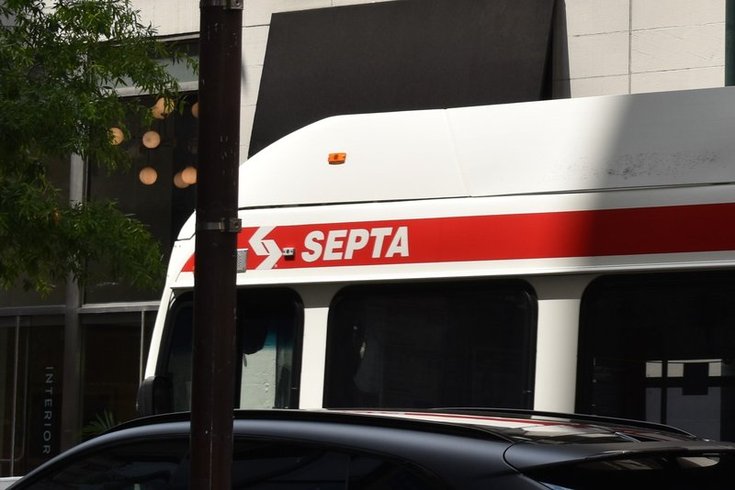
PhillyVoice: Proposed Transit Access Fund would protect Zero Fare program for low-income SEPTA riders – On Thursday, city councilmember Nicolas O’Rourke introduced a proposed bill package that would direct 0.5% of the city’s general fund to a Transit Access Fund, to permanently fund the Zero Fare Initiative. The pilot program provides free SEPTA access to low-income Philadelphians.
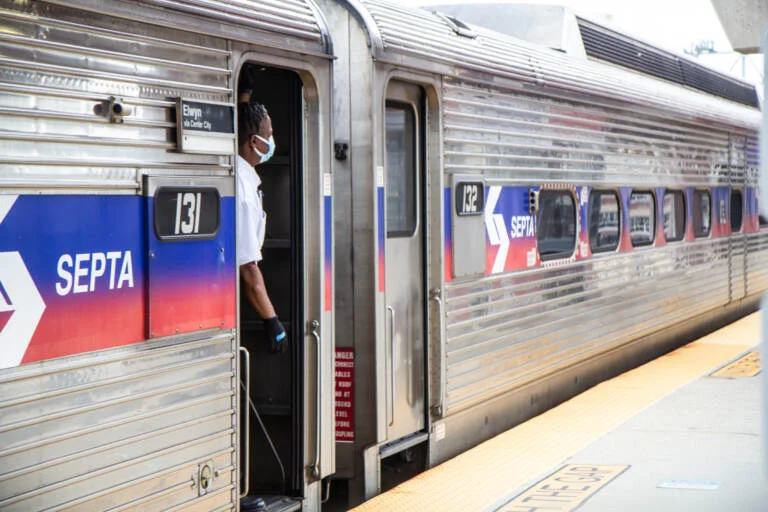
WHYY: Without SEPTA, Philly businesses worry about lack of parking, traffic gridlock – SEPTA services are a critical part of the commute for as many as 9,000 University of Pennsylvania Health System employees, in addition to patients visiting the hospital. Concerns about the lack of accessibility of the hospital and overflowing parking lots are among issues raised by SEPTA’s proposed service cuts.
Other Stories
The Inquirer: A Morse code-like system governs when and how train engineers sound their horns
PlanPhilly: Philly’s commuter foot traffic outpaced most peer cities’ downtowns in 2024
Pittsburgh Union Progress: Emotional testimony, Democratic funding proposal highlight hearing on transit cuts
NBC10: Expect a slow ride along stretch of City Avenue as crews pave pedestrian bridge
The Inquirer: More roundabouts could be coming to the Philadelphia area soon
“The Hub” is a weekly round-up of transportation related news in the Philadelphia area and beyond. Check back weekly to keep up-to-date on the issues Clean Air Council’s transportation staff finds important.
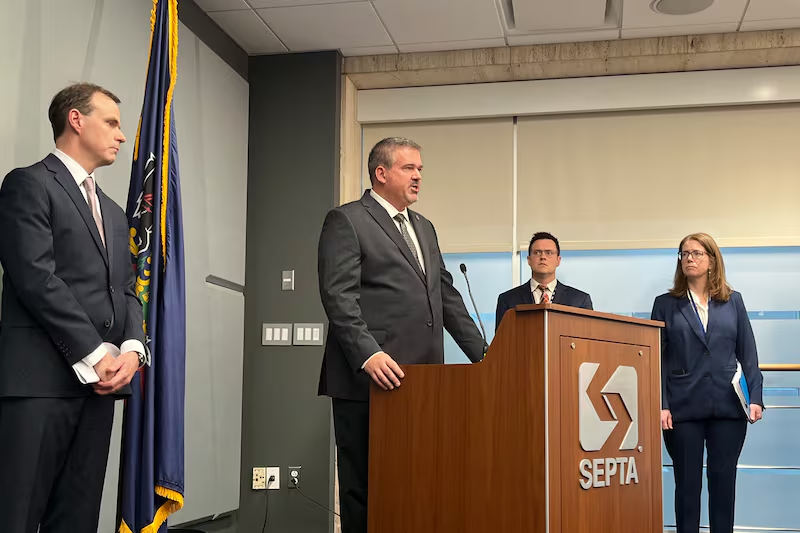
SEPTA in Crisis: SEPTA’s doomsday scenario is here: if you didn’t catch it last week, SEPTA announced a proposed $2.6 billion budget that would see vastly reduced service and fare hikes. SEPTA’s financial crisis has been impending for years; this proposed budget includes the potential elimination of 55 bus routes, five Regional Rail lines, and 66 stations. To avoid cuts, our state legislators must pass a budget that properly funds public transit and prevents our transit agencies from reducing services and increasing fares. SEPTA riders who depend on public transportation to access school, doctor’s appointments, and other vital daily needs in the city gathered to decry essential service cuts in a rally last Friday. State Senators Nikil Saval, Vincent Hughes, Joe Hoehenstein, and other local politicians, union members, and advocacy group leaders were present.
If you care about SEPTA and public transit in our state, take action by contacting your legislators here.
WHYY: Program places cameras on Philly buses to record motorists who illegally pass – 20 buses from the Philadelphia School District have been equipped with cameras in a new pilot program aimed at deterring drivers from illegally passing stopped school buses as students board and exit. The cameras, donated by vendors BusPatrol and Gatekeeper Systems, Inc., for no cost for the current school year, will provide data that will be monitored via AI and sent to the school district.
WHYY: Philly PHLASH adds 2 new bus stops, helping locals and visitors ‘explore every single attraction’ – The seasonal PHLASH bus service has added 2 new bus stops, increasing accessibility to spots like the Mütter Museum and Rittenhouse Square. The first stop is on Arch Street, between 5th and 6th streets; the second stop is on the Ben Franklin Parkway, between 21st and 22nd streets.
Other Stories
Mass Transit: PA: Philly’s 250 plans challenged as SEPTA funding crisis looms
City & State Pennsylvania: From Philly to Pittsburgh, mass transit leaders sound the alarm on funding shortfalls
WHYY: Main Line business leaders say proposed SEPTA cuts would be ‘absolutely devastating’
Mass Transit: Amtrak, NJ Transit highlight infrastructure, equipment improvements in new report
PhillyVoice: NJ Transit engineers reject deal, setting stage for possible strike in May
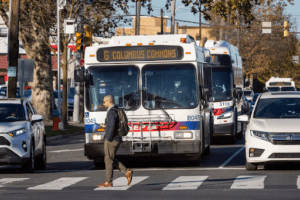
PHILADELPHIA, PA (Thursday, April 10, 2025) SEPTA is bleeding, and we need to stop the damage. In the last decade, the funding formula for public transportation has remained stagnant, even as costs for transit agencies have continued to rise. Now we are fully at a crisis point: SEPTA has announced fixed route service cuts up to 45% and fare increases of 21.5%. The impacts on disabled riders would be even more profound, with 40,000 paratransit trips per year no longer served by SEPTA ACCESS, and fares increased by 35%. This would effectively kill public transit in our region, and the ensuing damage to our riders, our economy, our healthcare system, our road congestion, and air quality is incalculable.
This is not just a Philadelphia issue. In all 67 counties of the Commonwealth, public transportation provides critical access for our elders, youth, disabled community members, and households without access to a personal vehicle. Transit systems statewide are hitting a funding “cliff,” which would devastate communities already suffering under similar cuts enacted over the past several years due to funding austerity. For instance, without new funding from the state, Pittsburgh Regional Transit will cut fixed route service by up to 40% with an additional 9% increase in fares. This is on top of 20% service cuts over just the last 5 years in Allegheny County. The lack of dedicated, expanded transit funding affects people riding to work in Allentown on LANTA, elders moving around their community safely in Erie, and disabled community members using paratransit in Harrisburg. The funding for all our transit agencies is tied to the same source, so the solution must be statewide, with input and support from communities all across the Commonwealth.
Transit riders and workers are ready with a response that meets the scale of the crisis. Over the last several years, our statewide coalition Transit for All PA! has been organizing for a new, dedicated state funding source to fund the transit services riders across the Commonwealth need. We are a coalition of thousands, hailing from Philadelphia to Pottstown, Bellefonte to Bellevue. And together, we have a shared demand: for state legislators to pass a new, dedicated funding package for public transit, sufficient to restore transit service across the state to 2019 levels– and to expand transit service in communities outside Pittsburgh and Philadelphia by an additional 10%. In the last three weeks, more than 10,000 Transit for All PA! supporters have contacted their state legislators and leadership in the House and Senate with this demand. This Transit for All PA funding package would go beyond austerity, and ensure transit funding stability and service restoration for all 67 counties statewide.
Better transit- not worse- is possible, is necessary, and is transformative. We’re ready to bring this challenge to our state elected leaders: will you meet this moment with us?
“It’s not enough to say that Philadelphians depend on SEPTA. SEPTA is part of the fabric of this city, and these cuts will have disastrous impacts on the quality of life in the Southeast, not to mention the larger state’s economy. It’s time for Harrisburg to stand up and say no budget without transit funding.” – Transit Forward Philadelphia
“Dependable public transit is the backbone of our region, connecting all neighborhoods to each other. With these proposed cuts and fare increases, our residents, environment, and economy would be devastated,” said Titania Markland, Clean Air Council’s Sustainable Transportation Program Manager. “We need a reliable funding source for public transit so we can get to where we need to go in a sustainable and equitable way.”
“The Hub” is a weekly round-up of transportation related news in the Philadelphia area and beyond. Check back weekly to keep up-to-date on the issues Clean Air Council’s transportation staff finds important.

PhillyVoice: New SEPTA Regional Rail schedules take effect to improve service reliability – As of Sunday, the schedules of 13 regional rail lines have been adjusted to improve efficiency. These schedule changes, in addition to strategic staffing and maintenance crew deployments, aim to reduce delays and bolster service reliability. Image Source: PhillyVoice

The Inquirer: PATCO will stop running overnight trains to clean its stations – For six months this spring, PATCO will stop running overnight trains, from midnight to 4 a.m., on weekdays as its 13 stations are deep cleaned. The agency is coordinating with the city, social service organizations, and South Jersey municipalities to make stations cleaner and safer. Image Source: The Inquirer

NBC10: PATCO finally has reopening date for long-shuttered Franklin Square Station – On April 3rd, the renovated Franklin Square Station at 7th and Race will reopen for the first time in decades, expanding the PATCO line to 14 stations. Train service to the station will begin in the afternoon following a ceremony at noon. Image Source: The Inquirer
Other Stories
PhillyVoice: Market Street Bridge to close for 14 months starting August 2026 during $149 million rebuild
The Inquirer: Philly council members tabled a bill over concerns about bringing speed cameras to school zones
PhillyVoice: Reopening of MLK Drive Bridge pushed back to September after cold weather slowed repairs
NBC10: Lights go out in part of 30th Street Station, traffic lights outside also go down
StreetsBlog USA: What Will ‘Safe Streets and Road For All’ Mean Under Sec. Duffy?
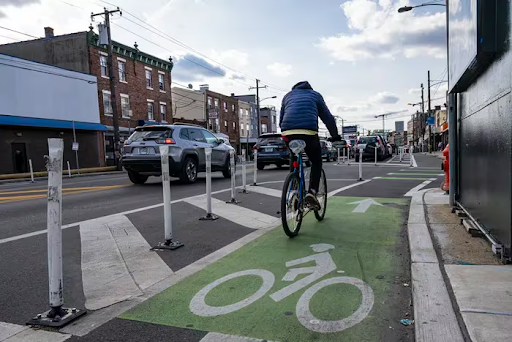
PennDOT released its annual transportation survey for all Pennsylvanians to complete. The survey asks participants about their transportation habits, what type and how they use transportation, and what improvements they want and how they want PennDOT to invest in the future.
Your feedback will be an important part of PennDOT’s 12-year Transportation Program update process along with other state and regional transportation plans. Sustainable modes of transportation are the best for the environment. Clean Air Council supports active sustainable modes of transportation. For more information on how to complete the survey, please visit https://bicyclecoalition.org/penndot-transportation-feedback-survey/.
Earlier this May SEPTA held public comment about their proposed FY2024 capital and operations budgets. These budgets are a big deal because they direct the future of public transportation in the Philadelphia area, which is an important form of sustainable transportation, as well as a vital resource for many in the region. These budgets propose lots of important investments including funding for improving the accessibility of the transit system, and instituting a second free transfer for riders when they pay with SEPTA Key. You can view the budgets here, and read a summary of what is included from our partners at Transit Forward Philly here.
Maya Frydman, a Transportation Outreach Coordinator at the Council, attended the hearings and gave public comment on behalf of the Council. You can read their comments below. SEPTA is still accepting public comment until May 31st, if you would like to share your thoughts on what to prioritize when it comes to transportation spending you can email operatingbudget@septa.org and capbudget@septa.org respectively. You can also leave a comment in the form of a voicemail by calling 215-580-7772 for the operations budget and 215-580-7771 for the capital budget. Making public transit accessible, reliable, affordable, and frequent is one of the best ways to combat fossil fuel emissions and support the health of the region, so share your thoughts with SEPTA and stay engaged with our transportation work going forward.
Operational Budget Testimony:
Capital Budget Testimony:
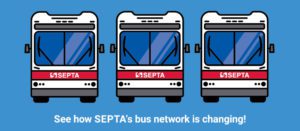
SEPTA recently released their draft bus network redesign, which overhauls the entire bus system with the aim of making bus lines more convenient, reliable, and easier to understand for riders. This redesign includes big changes to the network as well as individual bus lines.
From now through December, SEPTA is hosting a series of in-person and virtual community meetings to hear what bus riders think about these changes. If you are a SEPTA bus rider, make sure to take a look at the network redesign and show up to your local meeting to give your feedback to SEPTA.
Here are the upcoming in-person community meetings:
- 11/3 Thu, 4–6 pm: Chester City Hall Community Room, 1 E 4th St, Chester, PA 19013
- 11/5 Sat, 1–3:30 pm: East Passyunk Community Center, 1025 Mifflin St, Philadelphia, PA 19148
- 11/9 Wed, 3–5 pm: Lucien Blackwell Community Center, 761 N 47th St, Philadelphia, PA, 19139
- 11/10 Thu, 5–7:30 pm: Kingsessing Recreation Center, 4901 Kingsessing Ave, Philadelphia, PA 19143
- 11/12 Sat, 2:30–4:30 pm: Upper Darby Free Library Municipal Branch, 501 Bywood Ave, Upper Darby, PA 19082
- 11/15 Tue, 5:30 – 7:30 pm: Lower Merion Administration Building, 75 E Lancaster Ave, Ardmore, PA 19003
- 11/16 Wed, 6–8 pm: The Liacouras Center, Fox-Gittis Room, 1776 N Broad St, Philadelphia, PA 19121
- 12/8 Thu, 5:30–7:30 pm: SEPTA, 1234 Market St, 3rd Floor, Philadelphia, PA 19107
In addition to these in person meetings, SEPTA is also hosting virtual conversations on Monday nights where community members can share their thoughts about the draft network. These, like the in-person meetings, will each focus on a specific neighborhood.
Here is the schedule for virtual community meetings:
- 11/7 Mon, 6:30-7:30 pm: Northwest Philly – Register
- 11/14 Mon, 6:30-7:30 pm: South Philly – Register
- 11/21 Mon, 6:30-7:30 pm: Bucks & Montgomery Counties – Register
- 11/28 Mon, 6:30-7:30 pm: West Philly – Register
- 12/5 Mon, 6:30-7:30 pm: North Philly – Register
- 12/12 Mon, 6:30-7:30 pm: Center City – Register
Attendees at both the in-person and virtual meetings will be entered into a prize raffle, but more importantly this is an opportunity for bus riders to let SEPTA know their thoughts before these changes are finalized.

